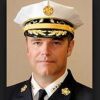Editor’s note: Chief Adam K. Thiel considers the 10-year anniversary of the The Station nightclub fire that killed 100 and examines how we can each influence attitudes toward fire safety in our daily lives.
While I wasn’t directly involved in the response to The Station nightclub fire 10 years ago, it’s easy for me to recall that tragic incident and its aftermath.
As Virginia’s state fire programs director at the time, I remember getting many questions — from elected and appointed officials, the media, and ordinary residents — about whether or not a similar incident could happen “here.” (With “here” meaning wherever those folks lived, worked, played or represented.)
Amazingly enough, or maybe not, it was hard to explain that, without major changes to the built environment and fire departments’ enforcement capacity, the answer was almost always, “yes.” Needless to say, there was a lot of interest in, and activity around, nightclub safety across the U.S for several months after Feb. 20, 2010.
And then it stopped. Not everything, not everywhere, but I think it’s safe to say that, as a public policy issue, nightclub safety wasn’t on policy makers’ radar for very long.
Now, I’m not going to lament that fact, since (right or wrong) it’s fairly typical of the ebb and flow of the public policy process; especially where fire-related issues are concerned.
The real question, I believe, is how can we meaningfully affect fire safety, in nightclubs and everywhere else, without new laws, regulations and ordinances?
The answer probably rests in finding more, and better ways to reach our residents with accurate information about fire risks and, more importantly, how to assess the safety of their surroundings.
Probably like many of you, I’m often asked why I always sit near an exit door. Every time I have that conversation, it’s a teachable moment. I’ve also had to explain to friends and family members why I won’t go to this or that restaurant, bar, club ... or even stay in someone’s home. The hope is that, eventually, people will start demanding, through their own behaviors and choices, fire safety in the places where they live, work and play.
Is it going to take awhile? Sure, but let’s not wait for the next tragedy before we get started.
Stay safe!












